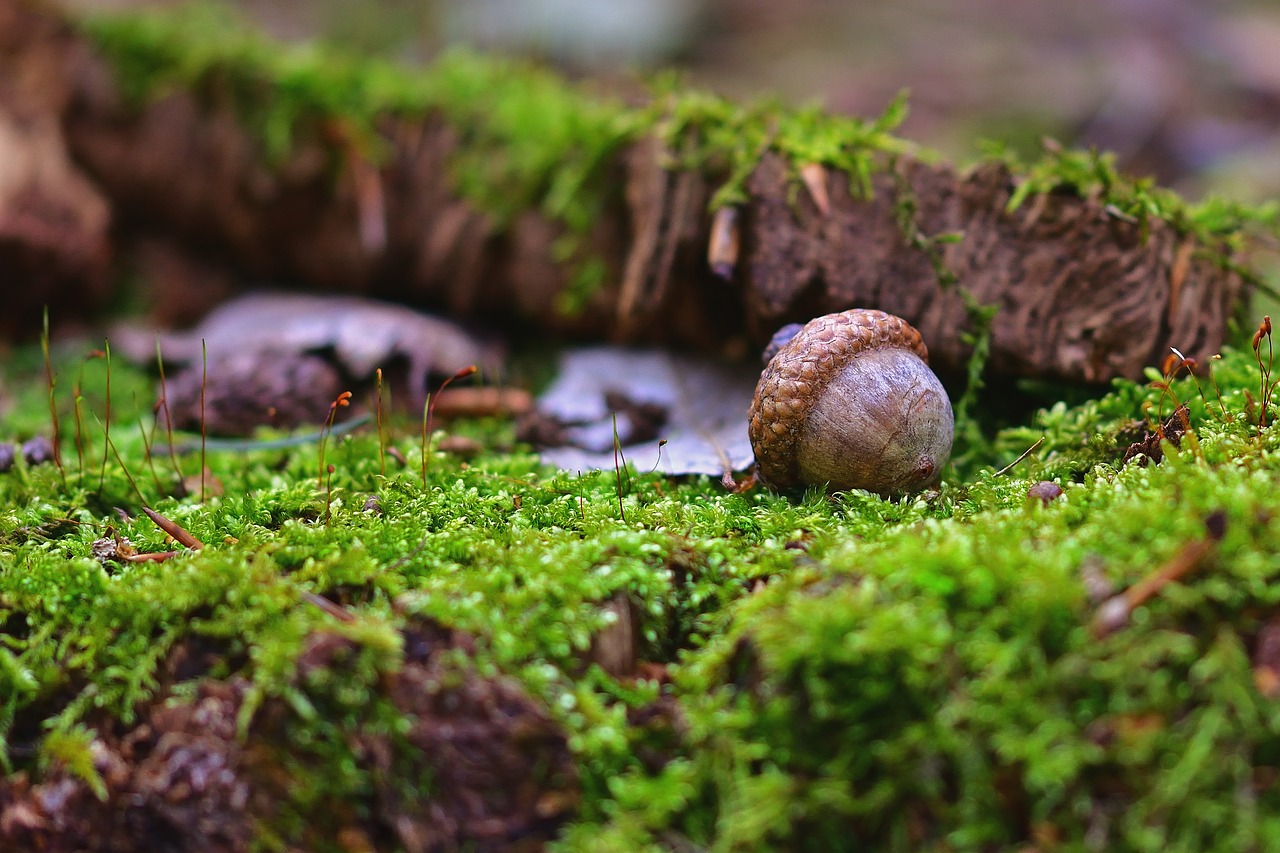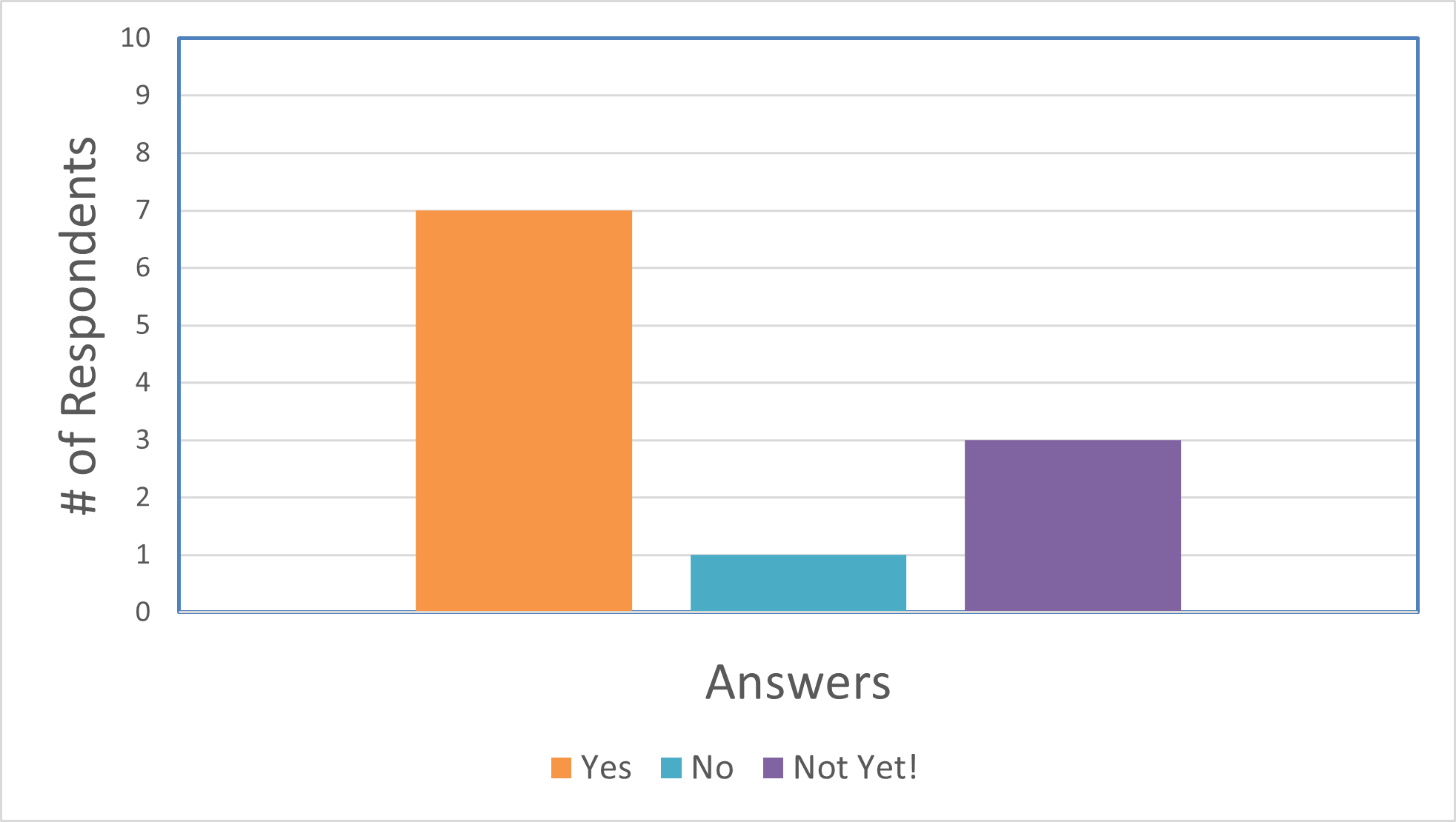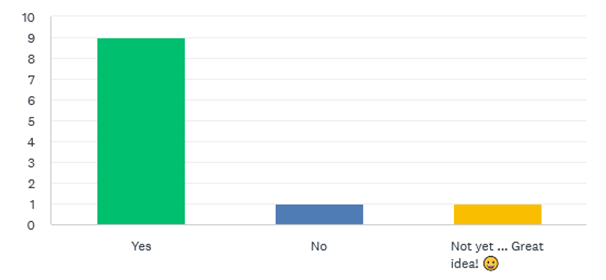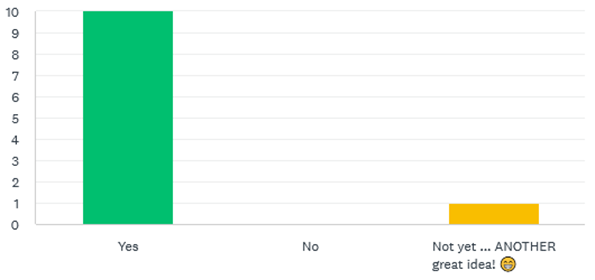
From Then to Now: What Learners are Still Telling us About Their CURE Experiences - Part II
Perceptions on Developing as a Researcher
By HAROLD BULL, DAWN GIESBRECHT, AND SHERYL MILLSThis blog series is authored by USask denizens Harold Bull, Dawn Giesbrecht and Sheryl Mills. Harold is Assistant Professor Biochemistry, Microbiology & Immunology. Dawn is Laboratory Instructor Anatomy, Physiology and Pharmacology; Biochemistry, Microbiology and Immunology. Sheryl is Associate Director, Academic Programs & Interprofessional Education, USask Health Sciences.
In Post 3, From Student to Researcher (in one Term!): What learners told us about their CURE experiences, we provided direct quotes from learners. After four years of consistent, powerful, and insightful learner comments we decided to do a more fulsome study. We took the plunge and surveyed1 CURE course graduates from our first four offerings of the course (2019-2022). One quarter (25% response rate) of all learners responded2. This blog series (within a series) (harmoniously🎵🎵) presents the data from the survey in four parts.
Part I presents data from survey questions related to skills and attitudes. Part II presents data from survey questions related to developing as a researcher. Part III presents data from survey questions related to generalizing the CURE approach to other courses. Part IV presents data from survey questions related to challenges the learners experienced in the CURE course and skills gained. (Note: The questions were not presented in this order on the survey. All survey respondent comments are included—no editing or cherry picking. 🍒)
Part II
Recall that the blog series is called From Student to Researcher (in one Term!) 😉 so we asked CURE graduates about this in a variety of ways. Part II presents the data from survey questions related to developing as researchers.
- Using a five-point Likert scale with 1 being “not at all”, and 5 being “A very major contributor”, respondents were asked the extent to which they learned about “doing science” through participating in this course.
Table 1: Learning about “doing science”
|
Areas |
Weighted Average |
Range of Responses |
|
Managing time and materials |
4.45 |
3-5 |
|
Creating a manageable project for the time and resources available |
4.36 |
4-5 |
|
Creating a proposal to research your own question(s) |
4.36 |
4-5 |
|
Developing a research question |
4.27 |
3-5 |
|
Aligning research methodology with research question |
4.18 |
3-5 |
|
Being a responsible lab citizen in a shared space |
4.18 |
3-5 |
|
Being responsible for the safety of yourself and others |
4.09 |
3-5 |
|
Data management |
4.0 |
2-5 |
|
Presenting and sharing findings |
4.0 |
2-5 |
- Did the CURE experience influence your decisions to conduct further research?

Figure 1: Decision to conduct further research based on the CURE experience
Comments:
- Yes it did. CURE really allowed me to be interested in science. Not just the facts or processes you can memorize but the understanding of those facts.
- Yes! encouraged me to continue with research and to pursue a masters.
- I worked in research for a while but now I’ve switched, however, CURE didn’t influence the way I felt about research at that point of time.
- Was conducting research in the CURE setting inspiring to you? If "Yes" - how was it inspiring? If “No” - why not? (This was only a comment box therefore there is no lovely figure for the question...FYI)
Comments:
- It is incredibly rewarding to have a more open-ended "laboratory" component that is the course rather than a minor portion of the course. Being able to use the trouble-shooting skillsets developed without TA or experiment that has been done before is extremely rewarding and memorable for personal growth and development. Having not just the skills but the confidence after graduation and in the work force is invaluable.
- Yes this setting was very inspiring. Just the sense that you have the knowledge and this is on you. No one is going to tell you what to exactly do. They can give guidance or advice. It really prepared my mindset for grad school and my honours project.
- Having to choose a project and creating a plan with my project mates gave us a sense of responsibility to our results.
- I found it inspiring as it helped structure research in such a way as to make it feel like something I was capable of and did in fact enjoy.
- I think it sets me up well to expect what was coming for my honors project in terms of the amount of work and labor that goes into making a project. It also provided me many useful skills such as pipetting, measuring, transformation, presentation, writing, etc.
- It was a great way to pick a topic that interested you and you were able to do the experiments. It allowed you to see how an experiment may work and if it doesn’t work you need to figure out why it didn’t
- Yes, it taught me how to plan a project, thinking of good ways to respond the research question, resolve inconveniences on the data collection. Finally, it inspired me to follow hypothesis driven studies.
- Through the CURE course, I gained knowledge in how scientific research is conducted and most importantly how NSERC-styled thesis and project reports are written.
- It gave me a taste of what research was and helped me decide that I wanted to do an honours project.
- Yes, in a sense. It was so nice to have that first "independent learning" experience in my undergrad degree. However, my year was the fully-online COVID year so it was difficult to feel inspired based off of lab results/experiment planning.
- It was a little bit inspiring since I was already working in research and studying to design my own experiments. However, when presenting or discussing teams’ ideas with Dr. Bull, his questions and suggestions made us objectively think about it in short and long term results and their impact.
- Have you added the CURE experience to your CV/resume to highlight skills and previous research experience?

Figure 2: Adding CURE experience/skills to CV/resume
Comments:
- PCR3 is still the mainstream. So having done a project that involved PCR was excellent to have on the resume.
- I have mentioned the skills I gained during my CURE experience as well as a research snapshot from project we worked on. Thank you Dr. Bull for this wonderful opportunity.
- I have used it on my CV and scholarship applications.
- Yes, I did. I also listed our team's project and the skills I've learned in my CV.
- I have added it to my academic background
- I am looking for Lab Technician or Research assistant Jobs preferably at USASK and therefore, I have been adding this as an experience in my resume and CV.
- We were not able to accomplish a lot in the short amount of time since the school closed due to COVID-19 but it was a great experience.
- Have you leveraged your CURE experience for other research opportunities?

Figure 3: Leveraging CURE experience for other opportunities
Author’s Reflections
Our highlights 🥳
- How inspiring the CURE course was for learners.
- CURE course graduates used the experience on their resumes.
- The weighted average (scale of 1-5) on “doing science” aspects were all 4 and up of a possible 5.
- Learners gained not only skills, but also confidence.
- CURE graduates are using their experiences to advance their studies and careers.
What we would like to know more about 🧐
- How the respondents compared to others in the CURE graduate cohort that missed this valuable CURE survey opportunity…yeah, we’re looking at you, the silent 75%...😐
- The perspective of others in the Biomedical Sciences program who did not take the CURE course on:
- research
- doing science
- the value of research skills
- on our (presumed...?) humour, etc.
- How CURE graduates in graduate programs compare to non-CURE graduates in graduate programs.
We continue this “series within a series” with Part III (generalizing the CURE approach to other courses—yup! Learners tell us it's do-able), and Part IV (skills gained and still being used, and challenges learners experienced in the CURE course).
[1] Please contact the authors for the survey.
[2] Yes, we are aware that anything over 10% response is extraordinary! And we were very pleased.
[3]Polymerase Chain Reaction … that thing that was awarded a Nobel Prize a few years back. Sheryl claims she is going to listen to the song linked in this footnote...hint: YMCA-inspired. Yup...it seems to be a sciencey in-thing...🙄
